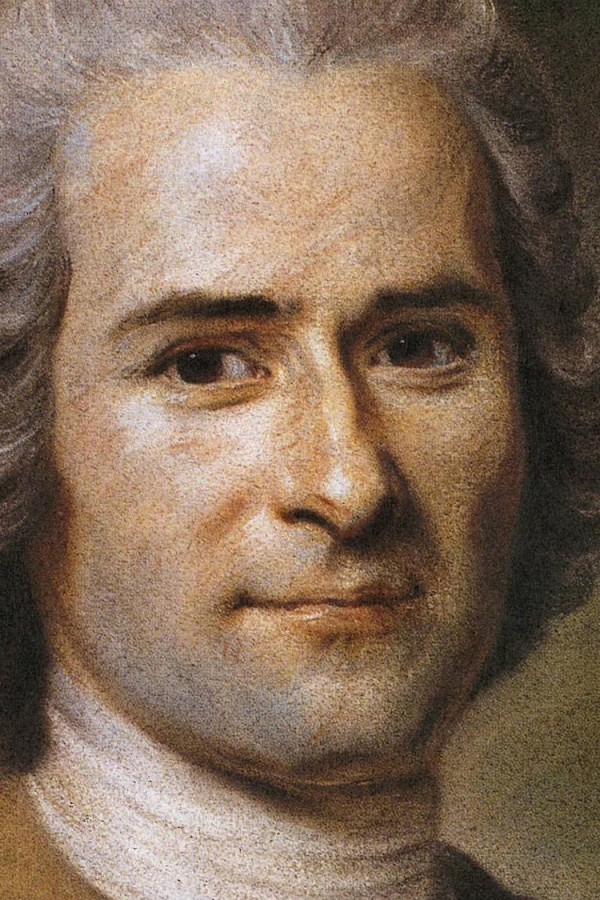Jean-Jacques Rousseau, 1712–1778

Date: 1712–1778
City of birth: Geneva Country of birth: Switzerland Field of activity: Politics — philosophy More detail coming ...
Quotes
Author
Jean-Jacques Rousseau
Speaker
Jean-Jacques Rousseau
Title of the publication
The Social Contract
Publisher (or journal name with vol. and number)
Original publisher: Marc-Michel Rey; Publisher of translation: Oxford University Press
City of publication
Original publisher: Amsterdam; Publisher of translation: London
Country of publication (modern nation-state equivalent)
Netherlands
Publication date
Original: 1762; Translation: 1994
Location [pp. or web]
p. 76
Original language
French
Genre
Book
Context
This passage occurs with a book that argues against the divine right of monarchs, exploring the question of legitimate political authority. The book is a classic in political philosophy from the eighteenth century that influenced the course of the French Revolution. The book was banned in Paris. David Hume wrote to Rousseau on the publication of this work, ‘Of all the men of letters in Europe, since the death of Montesquieu, you are the person whom I most revere, both for the force of your genius and the greatness of your mind.’
Other contributors
Christopher Betts, translator
Author
Jean-Jacques Rousseau
Speaker
Jean-Jacques Rousseau
Title of the publication
The Discourse on the Origin of Inequality
Other contributors
Maurice Cranston, translator
Publisher (or journal name with vol. and number)
Original publisher: Marc-Michel Rey; Publisher of translation: Penguin
City of publication
Original publisher: Amsterdam; Publisher of translation: London
Country of publication (modern nation-state equivalent)
Netherlands
Publication date
Original: 1755; Translation: 1984
Location [pp. or web]
Epub, pp. 232–3
Original language
French
Genre
Book
Context
This is part of Rousseau argument that from the emotion of pity ‘flows all the social virtues’. It is, he says, the foundation of sympathetic engagement with others.
Author
Jean-Jacques Rousseau
Speaker
Jean-Jacques Rousseau
Title of the publication
The Discourse on the Origin of Inequality
Other contributors
Maurice Cranston, translator
Publisher (or journal name with vol. and number)
Original publisher: Marc-Michel Rey; Publisher of translation: Penguin
City of publication
Original publisher: Amsterdam; Publisher of translation: London
Country of publication (modern nation-state equivalent)
Netherlands
Publication date
Original: 1755 Translation: 1984
Location [pp. or web]
Epub, pp. 235–6
Original language
French
Genre
Book
Context
Rousseau’s writes directly about the passions in The Discourse on the Origin of Inequality (1755); sometimes referred to as the Second Discourse. This quote occurs in the context of a discussion of the basic emotion of pity.
Author
Jean-Jacques Rousseau
Speaker
Jean-Jacques Rousseau
Title of the publication
The Discourse on the Origin of Inequality
Other contributors
Maurice Cranston, translator
Publisher (or journal name with vol. and number)
Original publisher: Marc-Michel Rey; Publisher of translation: Penguin
City of publication
Original publisher: Amsterdam; Publisher of translation: London
Country of publication (modern nation-state equivalent)
Netherlands
Publication date
Original: 1755 Translation: 1984
Location [pp. or web]
Epub, p. 200
Original language
French
Genre
Book
Context
Rousseau remains one of the most influential philosophers from the eighteenth century’s Enlightenment project. A controversial figure, he clashed with authorities, other philosophers and friends, moving between Geneva, Annecy, Paris and London accordingly. Rousseau’s most significant engagement with emotion occurs in The Discourse on the Origin of Inequality (1755); sometimes referred to as the Second Discourse, in which he argues that in addition to the Hobbesian principle of self-interest that motivates human actions, the second principle that characterises the ‘natural’ human soul is pity. That is, ‘an innate repugnance to see his fellow suffer’ (Second Discourse, Vol. II, p. 36).